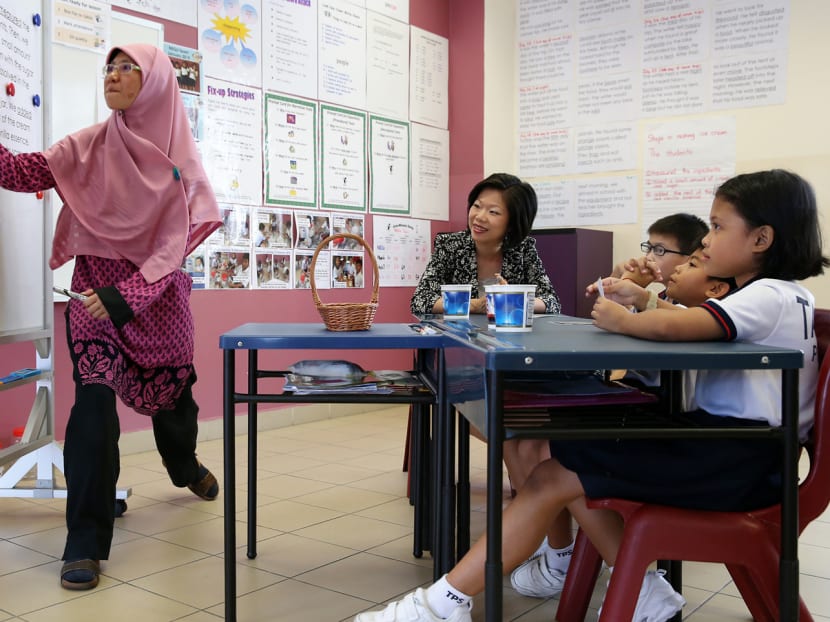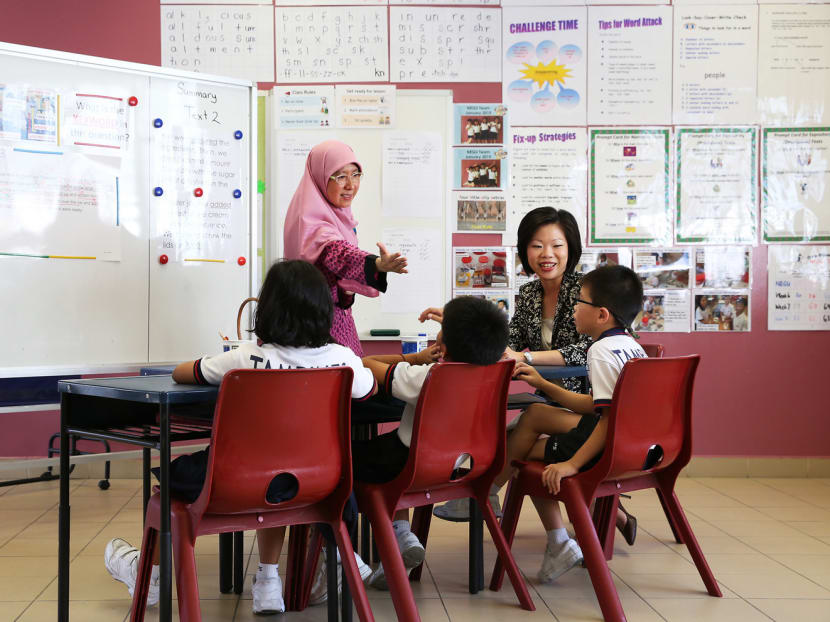More primary schools to have dyslexia help
SINGAPORE — More students with reading difficulties are getting help as the School-based Dyslexia Remediation Programme is being extended to 60 more primary schools this year, the Ministry of Education (MOE) said yesterday, adding that it will be available to all schools by 2016.


SINGAPORE — More students with reading difficulties are getting help as the School-based Dyslexia Remediation Programme is being extended to 60 more primary schools this year, the Ministry of Education (MOE) said yesterday, adding that it will be available to all schools by 2016.
Another 290 students with dyslexia are expected to benefit from this year’s expansion, on top of the 1,510 students that have already gone through the programme since 2012, when it was first piloted for Primary Three and Four students.
Speaking to the media after a visit to Tampines Primary School, Minister of State (Education) Sim Ann said there has been growing awareness of the condition and that more students are also being put through diagnostic tests.
The MOE said findings from the 2012 pilot showed that students improved their reading and spelling skills, with a majority of them making more than two-and-a-half years’ gain in their reading age.
Ms Sim said: “Our goal of extending this to all primary schools stems from our belief that reading is very foundational. It’s very important for our students to be able to access targeted and effective help.”
Taught by Allied Educators and trained English Language teachers, the two-year programme tackles common problems faced by children with dyslexia, such as the difficulty in making connections between letter sounds and letter names. A range of methods is used, including drawing the word in the air with their fingers, to help them learn to read letters.
Tampines Primary School principal Veronica Tay felt the programme was rigorous and provided a curriculum that was in line with what was being taught in the classrooms. Before the school started offering the programme last year, Ms Tay said the Dyslexia Association of Singapore had been invited to share more about the condition with their staff.
Parent Wong Siu Yin, whose 10-year-old son is attending the programme, said she saw a marked improvement in his ability to spell and read and found that he throws fewer tantrums now that he is able to better express himself. Siau Ming En






